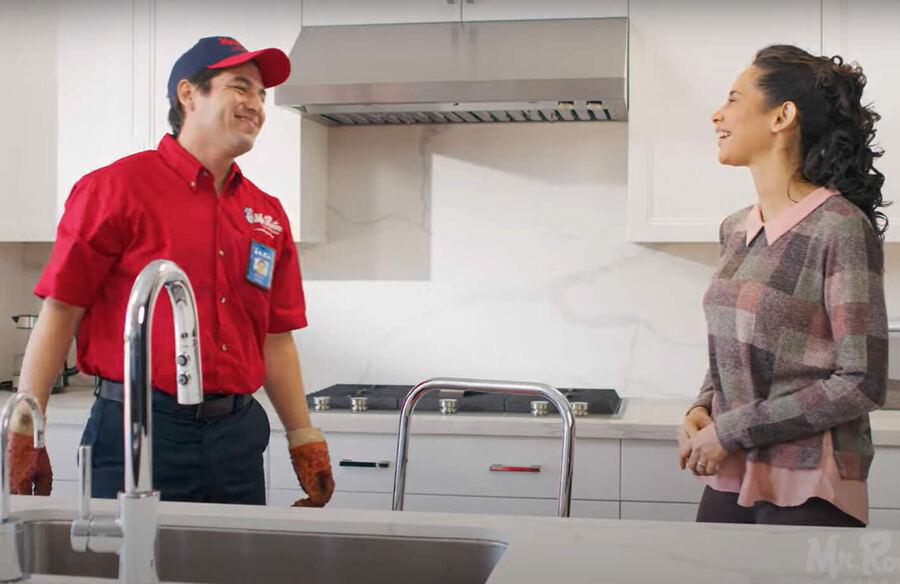Schedule a Plumber This Sunday to Get 50$ OFF
Schedule a Plumber This Sunday to Get 50$ OFF

Caretaking kitchen and bathroom faucets is more crucial than you may realize. Simple steps such as regular inspection can prevent more serious problems. By keeping up this practice, you could extend their lives while preventing faucet replacement hassles altogether. Here, Mr. Rooter Plumbing presents three essential tips on keeping them looking their best!
The key to keeping your faucets looking their best is regular maintenance - though this might seem obvious, it can easily go overlooked. Over time mineral deposits, soap scum, and grime build up on faucets over time which, left unchecked, will eventually make them appear dull while potentially impairing their performance.
Cleaning faucets doesn't require expensive cleaners - all it needs to be effective is some vinegar and water mixed together in equal parts, then using a soft cloth, mix as instructed above to wipe it down the faucets. For tougher stains or mineral deposits, soak an additional cloth in this mixture for several hours wrapped around your faucet to help dissolve mineral deposits and mineral build-ups.
Regular checks for leaks or drips are also key. Dripping faucets wastes water and signals larger plumbing issues that require professional assistance. If any leaks do arise, try fixing them promptly to limit further damage and preserve water for future uses.
The second tip for proper care when handling faucets is to handle them carefully. While this might sound straightforward, it can be easy to be rough when in a rush; turning handles too hard may wear down internal components more rapidly, leading to leakage issues or needing plumbing repair services in an unexpected timeframe.
To avoid this scenario, always turn your faucet handles gently—only a slight turn is needed to switch the water on or off. If more forceful movements are necessary to switch it on and off, this could indicate something is amiss, prompting a call to an expert plumber for inspection.
As another precautionary measure, avoid hanging heavy objects from your faucet. This is particularly crucial in the kitchen, where it might be tempting to hang items such as dishcloths and pots from it. This extra weight puts extra strain on it, which could result in damages that require replacement altogether.
For added peace of mind, consider scheduling regular inspections by professional plumbers. Even if everything seems fine now, having someone come inspect your faucets and other fixtures once annually could detect potential issues before they turn into bigger issues.
At these checkups, your plumber will inspect for signs of wear and tear, leaks, and overall functionality issues. They can also give your faucets an in-depth cleaning, eliminating any build-up you might not be aware of.
If a plumber discovers any serious problems that cannot be easily corrected, they may recommend installing a replacement faucet. While this might seem costly at the outset, replacing an inoperable fixture could actually save money over time by preventing water damage to property and decreasing your bill.
Maintaining the condition of your faucets might seem minor, but its benefits can have a major effect on your home. Regular upkeep can extend their lifetime and save money on replacement costs or repairs while helping prevent leaks that would require costly and time-consuming fixes later down the line.
By adhering to these three tips—regularly cleaning and maintaining your faucets, handling them carefully, and scheduling regular check-ups from professionals—you can keep both kitchen and bathroom faucets functioning perfectly. And should any problems arise, don't hesitate to seek assistance from an emergency plumbing service!
Maintaining kitchen and bathroom faucets is essential to the efficiency of your home, with regular maintenance including professional checkups as an important preventative measure against problems requiring replacement or costly plumbing repairs. Remember, calling in a plumber immediately upon any signs of trouble may save time and money in repairs later down the line; by taking these simple steps your faucets should continue running efficiently while your home stays in great shape!
A peaceful home is built on small comforts—soft lighting, cozy spaces, and plumbing that works quietly in the background. When a faucet starts dripping, squealing, or banging, it quickly becomes…
A clogged drain may seem like a minor annoyance at first, but ignoring it can lead to much bigger issues inside your home. Water that drains slowly is often a…
You expect clean and clear water when you open your home’s faucets and shower heads. When it’s not, you know that you have a hidden water line problem on your…